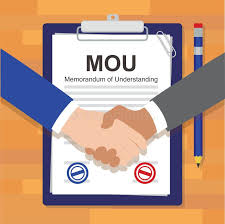Pengembangan Bahan Ajar IPS SD Berbasis Model 4-P dan Reciprocal Teaching untuk Meningkatkan Keterampilan Berpikir Kritis dan Kolaboratif Mahasiswa Calon Guru
DOI:
https://doi.org/10.36928/wp8k9q74Keywords:
Pengembangan Bahan Ajar, IPS SD, Berbasis Model 4-P, Reciprocal Teaching, Keterampilan Berpikir KritisAbstract
This study is motivated by the limited research on the integration of instructional design models and collaborative teaching strategies in the development of social studies teaching materials for primary teacher education, despite its significant impact on preparing future educators with 21st-century skills. The study aims to develop and evaluate a learning material for Social Studies in primary education using the 4-P Model integrated with Reciprocal Teaching to enhance the critical thinking and collaboration skills of pre-service teachers. The research adopts a qualitative research and development (R&D) design, with a sample of 25 PGSD (Primary School Teacher Education) students selected through purposive sampling. Data was collected using interviews, observations, validation sheets, and learning outcomes tests, and analyzed through descriptive qualitative analysis supported by percentage-based descriptive statistics. The findings reveal that the developed teaching materials are valid, practical, and effective, showing improvements in students’ critical thinking and collaboration skills after implementation. These results align with the research objectives and support the constructivist theory and collaborative learning framework. The study concludes that integrating the 4-P Model with Reciprocal Teaching provides a pedagogically sound approach to enhancing essential skills in teacher education. The implications encompass theoretical contributions, such as enriching the literature on blended instructional models, and practical recommendations for teacher educators to adopt more integrated, student-centered learning designs. Additionally, this study identifies future research opportunities on the scalability of such models in diverse educational settings.
References
rends, R. I. (2014). Learning to teach (10th ed.). McGraw-Hill Education.
Doolittle, P. E., & Hicks, D. (2015). Constructivism as a theoretical foundation for the use of technology in social studies. Theory & Research in Social Education, 33(1), 72–104. https://doi.org/10.1080/00933104.2005.10473216
Huda, M. (2019). Empowering critical thinking through blended learning: A case study in teacher education. Journal of Education and Learning, 13(2), 243–250. https://doi.org/10.11591/edulearn.v13i2.12803
Joyce, B., Weil, M., & Calhoun, E. (2018). Models of teaching (9th ed.). Pearson Education.
Kusnandar, K. (2021). Pengaruh model pembelajaran reciprocal teaching terhadap kemampuan berpikir kritis siswa SD. Jurnal Pendidikan Dasar, 12(1), 33–42. https://doi.org/10.21009/JPD.XII.1.04
Majid, A. (2021). Perencanaan pembelajaran: Mengembangkan standar kompetensi guru. Remaja Rosdakarya.
Miles, M. B., Huberman, A. M., & Saldaña, J. (2018). Qualitative data analysis: A methods sourcebook (4th ed.). SAGE Publications.
Ministry of Education and Culture of Indonesia. (2020). Merdeka Belajar dan Profil Pelajar Pancasila. Kemdikbud.
Ningsih, R. M., & Widodo, S. (2022). Pengembangan bahan ajar tematik integratif berbasis 4-P untuk meningkatkan literasi siswa SD. Jurnal Inovasi Pendidikan, 9(1), 15–23. https://doi.org/10.21831/jip.v9i1.41825
Nurhadi, D. (2023). The role of collaborative learning in shaping student’s social competence in teacher education. Indonesian Journal of Educational Studies, 27(1), 55–64. https://doi.org/10.21009/IJES.271.07
Putri, L. R., & Supriatna, N. (2020). Integrasi model pembelajaran dalam pendidikan IPS SD untuk penguatan karakter. Jurnal Pendidikan Ilmu Sosial, 29(2), 140–148. https://doi.org/10.17509/jpis.v29i2.27544
Rusman. (2017). Model-model pembelajaran: Mengembangkan profesionalisme guru. Rajawali Pers.
Sari, D. P., & Yusuf, M. (2021). Pengembangan bahan ajar berbasis HOTS untuk meningkatkan kemampuan berpikir kritis. Jurnal Ilmiah Pendidikan, 20(3), 198–208. https://doi.org/10.1234/jip.v20i3.54321
Slavin, R. E. (2019). Educational psychology: Theory and practice (12th ed.). Pearson.
Susanto, H. (2022). Implementasi model 4-P dalam pembelajaran IPS untuk meningkatkan hasil belajar. Jurnal Pendidikan Dasar Indonesia, 7(1), 88–96. https://doi.org/10.21831/jpdi.v7i1.46231
Published
Issue
Section
License
Copyright (c) 2025 JIPD (Jurnal Inovasi Pendidikan Dasar)

This work is licensed under a Creative Commons Attribution-NonCommercial-ShareAlike 4.0 International License.













